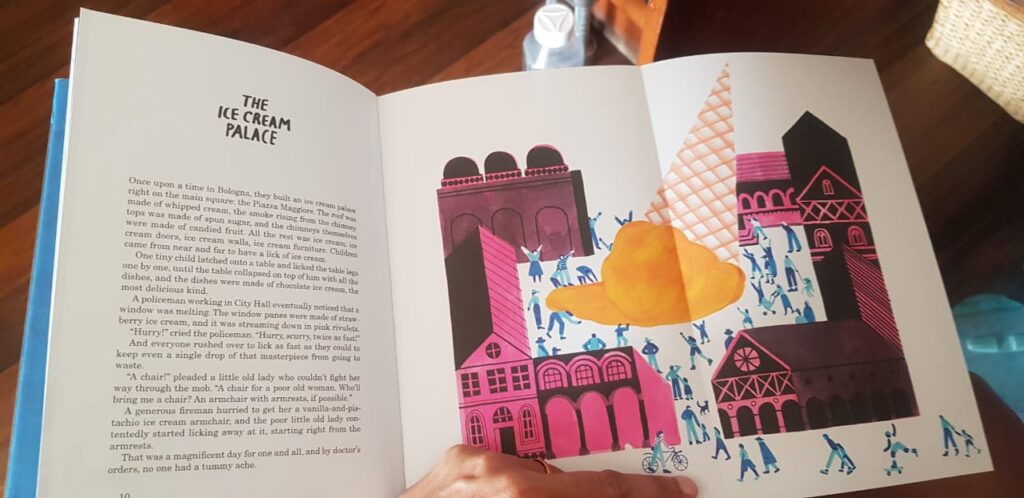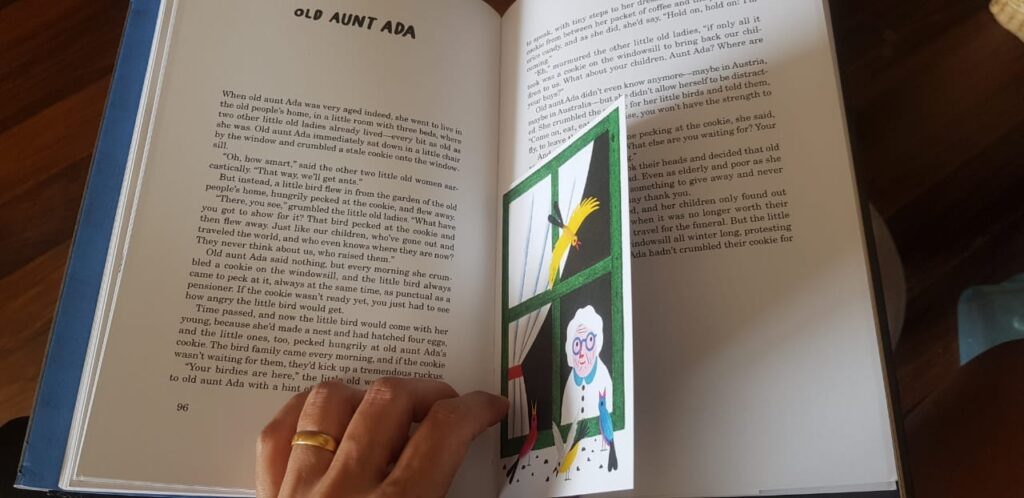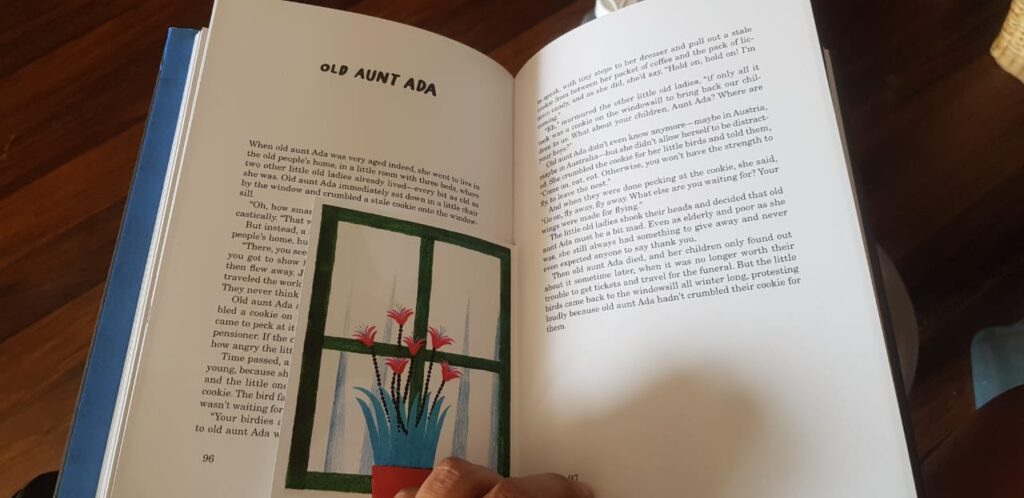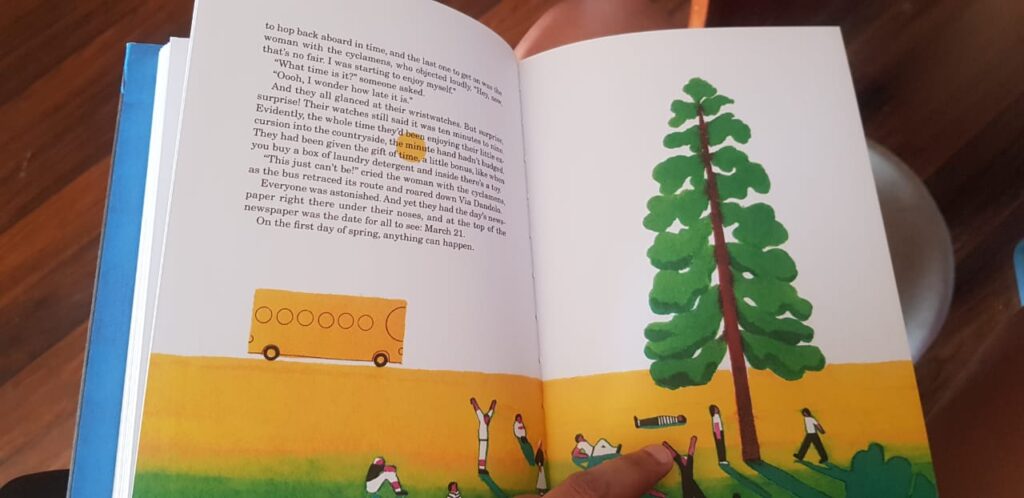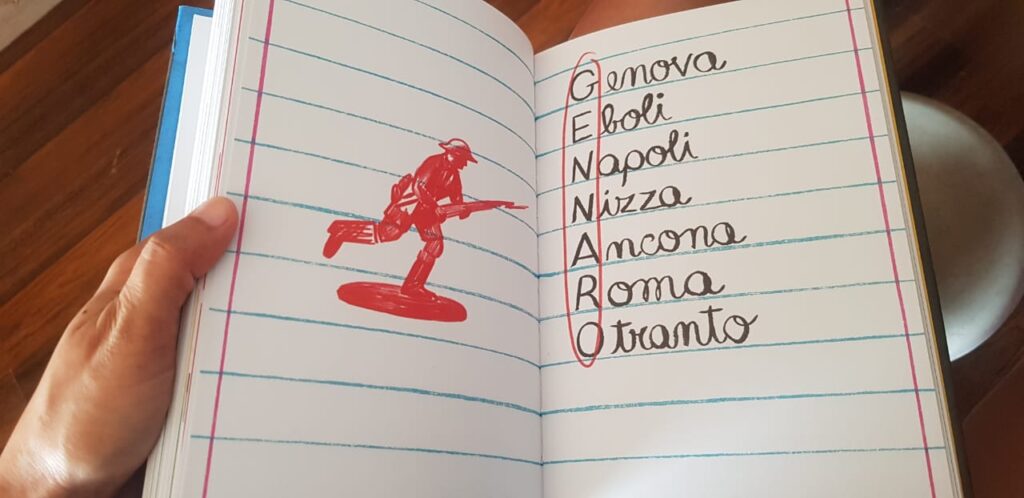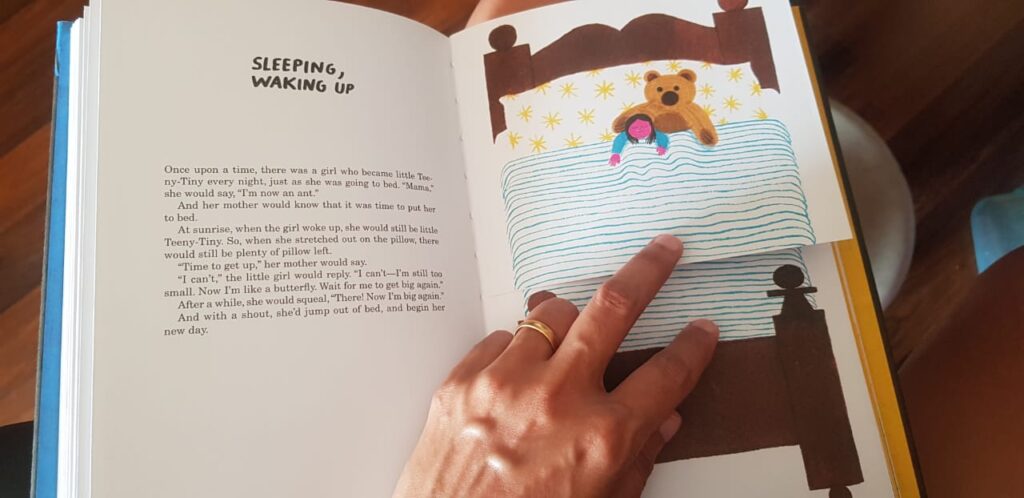“Telephone Tales” by Gianni Rodari

Telephone Tales by Gianni Rodari, translated from Italian to English by Antony Shugaar, illustrated by Valerio Vidali and is published by Enchanted Lion Books. It’s publication in 2020 marks Rodari’s centenary. A pivotal figure in children’s writing in post war Italy. He introduced nonsense verse into children’s poetry. He wrote over 25 children’s books. In 1970 he was awarded the Hans Christian Andersen Award as an author, the same year that Maurice Sendak received it for illustration. The wacky, brightly coloured, deceptively simple looking illustrations accompanying the stories are a perfect match for the zany imagination that Rodari unleashed upon the children. Incredibly Antony Shugaar manages to capture in his English translation the rhythm of nonsense verse that is subtly passed off as prose in stories such as “The War of the Bells”. As always, brilliantly translated and easy to read.
According to the press release:
The genius of Rodari lay in his commitment to the dialectical use of the imaginatinon, which he saw as necessary for passage from a passive acceptance of the world to the ability to challenge it and then to change it. Insight into Rodari’s subversive sensibility can quickly be gleaned from a casual comment he made in defense of comics: “Every now and then we hear talk about banning this or that comic: wouldn’t it be more useful to forbid teachers to hate books, which only turns them into instruments of torture instead of discovery?”
Telephone Tales is a collection of bedtime stories told by a father to his daughter over the telephone in the time allotted by a single call token, for the father is a travelling salesman and phone calls across countries are expensive. The Hans Christen Andersen Award committee said of his stories, “they are clearly and deliberately constructed. They develop according to their own natural laws, even though they may not always coincide with reality. They are truly fantastic stories rooted in our modern world which, through their playfulness, often take a very critical view of it. He wants to sharpen his young readers’ vision, so that they will learn to distinguish between essentials and nonessentials. He wants to open their eyes to true humanity, to tolerance and international understanding, to social justice and personal integrity.”
Rodari worked … for Italy’s education system and took a serious interest in pedagogy. In the 1960s, Italy’s schools were reformed to be more inclusive of poor and working-class children, but the changes sparked a conservative backlash. Rodari’s books, with their accessible style and jokes built around grammatical mistakes, were intended to empower disadvantaged children who weren’t exposed to books and formal speech at home.
“He wanted kids not to feel intimidated, to see mistakes as a tool to grow and as a creative moment,” Roghi, his biographer, said. She added that Rodari also contributed to the development of the Reggio approach, the educational philosophy born in Reggio Emilia after World War II, that saw the classroom as a self-educating community. ( Famous in Italy, Rodari Reaches U.S. Shores With ‘Telephone Tales’” The New York Times, 5 Sept 2020)
It is an absolutely gorgeous book! Impossible to put down once you begin reading it. The illustrations complement the text well but are never distracting. They add a playful element to the reading experience. Every little detail adds up to bring sheer joy in reading this magnificently produced volume of short stories.
Buy it!
16 Oct 2020

